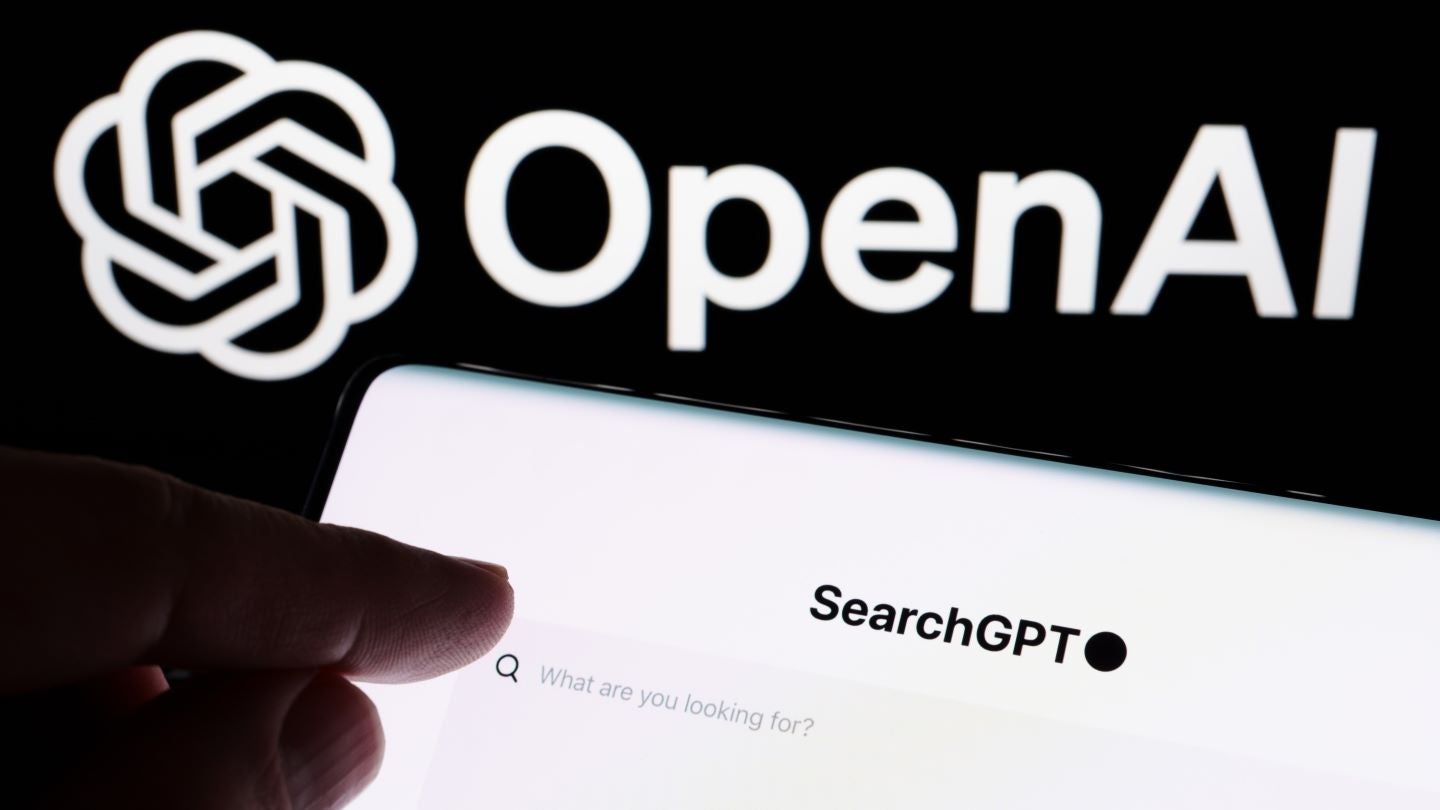OpenAI, the trailblazer behind ChatGPT, is on the verge of launching a revolutionary AI-powered web browser designed to directly challenge Google Chrome’s dominance. As the tech world buzzes with anticipation, India’s digital community is especially keen to see how this new browser could reshape the way millions interact with the internet. With artificial intelligence at its core, OpenAI’s browser aims to transform web browsing from a manual, search-driven task into a seamless, conversational experience—potentially upending the very foundations of how we explore, learn, and work online.
OpenAI’s upcoming AI-powered web browser represents a fundamental shift in how users interact with the internet, moving beyond the traditional search-and-click model to a more conversational, proactive experience. This new paradigm is expected to redefine browsing by allowing users to engage with the web through natural language commands, effectively turning the browser into a personal assistant that can understand context, anticipate needs, and execute complex tasks. Such a shift could dramatically reduce the time and effort required to find information, plan activities, or complete online transactions, making the internet more accessible and efficient for users of all skill levels.
The integration of advanced language models directly into the browser’s core architecture is a technical breakthrough that sets OpenAI’s offering apart from previous attempts to add AI functionalities through extensions or third-party tools. By embedding AI natively, the browser can provide real-time, context-aware responses, seamlessly blending search results with actionable insights. This means users won’t just receive links or snippets but can get summaries, comparisons, and even automated workflows that save time and reduce cognitive load. For example, planning a trip could involve the browser simultaneously checking flight options, hotel availability, and local attractions, then presenting a curated itinerary—all through a simple conversation.
One of the most compelling aspects of OpenAI’s browser is its potential to democratize access to information and digital services, particularly in emerging markets like India. With a vast and diverse internet population spanning multiple languages and varying levels of digital literacy, India presents unique challenges and opportunities. An AI-powered browser that understands regional languages, dialects, and cultural contexts could bridge significant gaps, enabling millions of users to navigate the web more intuitively. This could empower students, entrepreneurs, and everyday users to access resources and services that were previously difficult to find or use effectively.
Privacy and data security are critical considerations as AI becomes more deeply integrated into browsing experiences. OpenAI faces the challenge of balancing the benefits of personalized assistance with the need to protect user data from misuse or unauthorized access. Transparent data policies, user control over information sharing, and robust security measures will be essential to building trust. In markets like India, where digital privacy awareness is growing rapidly, OpenAI’s approach to these issues could influence user adoption and set new standards for responsible AI deployment in consumer technology.
The competitive landscape for AI-powered browsers is intensifying, with major players like Google and Apple incorporating AI features into their existing products, and startups innovating with niche capabilities. OpenAI’s advantage lies in its leadership in natural language processing and its massive user base from ChatGPT, which provides a ready audience familiar with conversational AI. However, sustaining this lead will require continuous innovation, seamless integration of AI capabilities, and a user experience that feels intuitive and genuinely helpful rather than gimmicky or intrusive.

OpenAI’s Browser: A New Era of AI-First Web Surfing
OpenAI’s upcoming browser, expected to debut by the end of July, represents a radical departure from traditional browsers like Chrome or Safari. Unlike current browsers that rely on plug-ins or extensions to add AI features, OpenAI’s product will have artificial intelligence embedded directly into its foundation. This means users will be able to perform complex tasks—such as booking tickets, summarizing lengthy articles, or managing daily schedules—simply by instructing the browser in natural language, without the need to manually click through menus or tabs.
The browser will reportedly feature a built-in ChatGPT-style conversational interface, allowing users to interact with the web in a more intuitive, dialogue-based manner. Instead of searching, clicking, and reading through multiple pages, users could just ask the browser what they need and get direct, summarized answers or completed actions. This agentic capability—where the browser can act on the user’s behalf—marks a significant leap in digital productivity and accessibility.
Why Now? Timing, Competition, and the AI Arms Race
OpenAI’s move comes at a pivotal moment in the tech industry. Google Chrome, with over 3 billion users and more than two-thirds of the global browser market, is facing mounting regulatory scrutiny and calls for greater competition. Apple has just rolled out major enhancements to Safari, while other AI startups like Perplexity and Brave are racing to launch their own AI-powered browsers.
OpenAI’s browser is not just about catching up—it’s about leapfrogging the competition. By integrating AI at the browser’s core, OpenAI aims to offer a fundamentally different user experience, one that could attract both individual users and businesses seeking smarter, more efficient ways to navigate the web. If even a fraction of ChatGPT’s 400 million weekly active users adopt the new browser, it could put significant pressure on Google’s advertising-driven business model, which relies heavily on data collected through Chrome.
Built on Chromium, Powered by AI: The Technology Behind the Browser
Technically, OpenAI’s browser is expected to be built on Chromium—the same open-source foundation that powers Chrome, Microsoft Edge, and Opera. This ensures compatibility with modern web standards and existing Chrome extensions, while giving OpenAI the flexibility to layer its AI innovations on top. The company has reportedly recruited former Google executives who played key roles in Chrome’s original development, signaling its commitment to building a world-class browsing experience.
At the heart of the browser will be OpenAI’s most advanced language models, enabling real-time chat, summarization, research, and task automation. Unlike previous attempts to add AI via plug-ins, this browser will natively support agentic AI features—meaning it can perform actions like filling out forms, comparing products, or even making reservations, all within the browser environment.
The User Experience: From Passive Searching to Active Assistance
The biggest shift OpenAI promises is a move from passive searching to active assistance. Instead of being a tool that simply displays web pages, the browser acts as a digital assistant, anticipating user needs and handling routine tasks. For example, a user could ask the browser to find the best flight deals, summarize the latest news, or organize their tabs and emails—all through a conversational interface.
This approach also means users may spend less time jumping between websites, as the browser can aggregate, analyze, and present information directly. For many, this could mean a dramatic reduction in “click fatigue” and a more streamlined, productive online experience. The browser’s ability to learn from user interactions could further personalize and enhance its assistance over time.

Data, Privacy, and the Battle for User Trust
One of the most significant implications of an AI-powered browser is how it handles user data. By embedding AI directly into the browsing experience, OpenAI will have access to rich behavioral data—similar to how Google leverages Chrome for targeted advertising. This data could be used to improve AI models and personalize services, but it also raises important questions about privacy, security, and transparency.
OpenAI will need to address these concerns head-on, especially in markets like India, where digital privacy is an increasingly hot topic. How the company manages data collection, opt-in policies, and user control will be crucial in building trust and differentiating itself from competitors. With regulators scrutinizing big tech’s data practices, OpenAI’s approach to privacy could become a major selling point—or a stumbling block.
The Indian Context: Opportunities and Challenges
India is a key battleground for the AI browser revolution. With one of the world’s largest and youngest internet populations, rapid smartphone adoption, and growing digital literacy, India offers fertile ground for innovative web technologies. OpenAI’s browser could appeal to students, professionals, and small businesses looking for smarter, more efficient ways to access information and automate tasks.
However, challenges remain. Internet connectivity, language diversity, and varying levels of digital literacy mean that OpenAI will need to localize its browser for Indian users. Support for regional languages, integration with popular Indian services, and robust mobile performance will be critical for mass adoption. Additionally, the browser’s ability to handle India-specific tasks—such as booking train tickets, accessing government portals, or navigating local e-commerce—will be closely watched.
The Competitive Landscape: Google, Apple, and the New AI Browsers
OpenAI is not alone in its quest to redefine web browsing. Google has already begun integrating AI features into Chrome, such as AI-powered writing help and search summaries. Apple’s recent Safari updates focus on privacy and speed, while startups like Perplexity and Brave are pushing the envelope with their own AI-first browsers. Perplexity’s Comet, for example, offers a built-in assistant that can summarize emails, organize tabs, and answer questions in real time.
What sets OpenAI apart is its scale, reputation, and deep integration of conversational AI. With ChatGPT’s massive user base and the company’s expertise in large language models, OpenAI is uniquely positioned to drive mainstream adoption of AI-powered browsing. The race is on to see which company can deliver the most helpful, secure, and user-friendly experience.
The Road Ahead: Will OpenAI’s Browser Change How We Use the Web?
The launch of OpenAI’s AI-powered browser could mark a turning point in the evolution of the internet. By shifting from a search-based, manual browsing paradigm to an agentic, conversational model, OpenAI is betting that users want more than just information—they want actionable, personalized assistance. If successful, this browser could not only challenge Google’s dominance but also inspire a new wave of innovation across the tech industry.
For Indian users, the promise of an AI-native browser is especially compelling. With the potential to bridge language barriers, simplify complex tasks, and empower millions of new internet users, OpenAI’s browser could accelerate digital inclusion and productivity. As the global tech giants battle for the future of browsing, India stands to benefit from smarter, more accessible, and more personalized web experiences.

Conclusion
OpenAI’s imminent launch of its AI-powered web browser signals a bold challenge to Google’s supremacy and a reimagining of what it means to browse the web. With agentic AI capabilities, deep conversational integration, and a focus on user-centric design, this browser has the potential to disrupt the status quo and usher in a new era of digital interaction. As India and the world watch closely, the next few weeks could determine whether OpenAI’s daring move will truly shake the foundations of the internet—or simply spark the next chapter in the ongoing AI arms race.
Follow: Google Chrome

